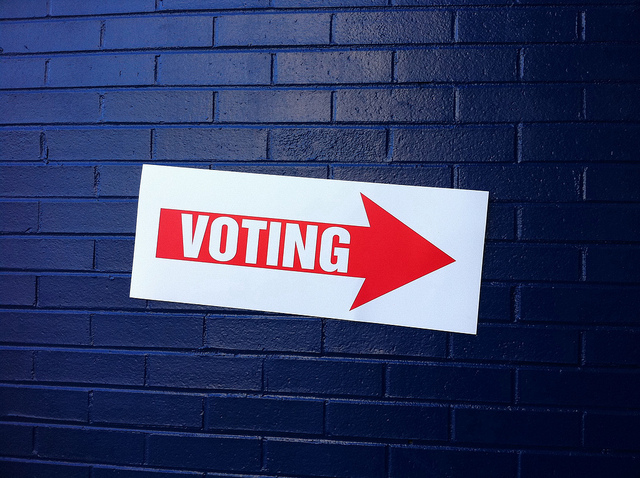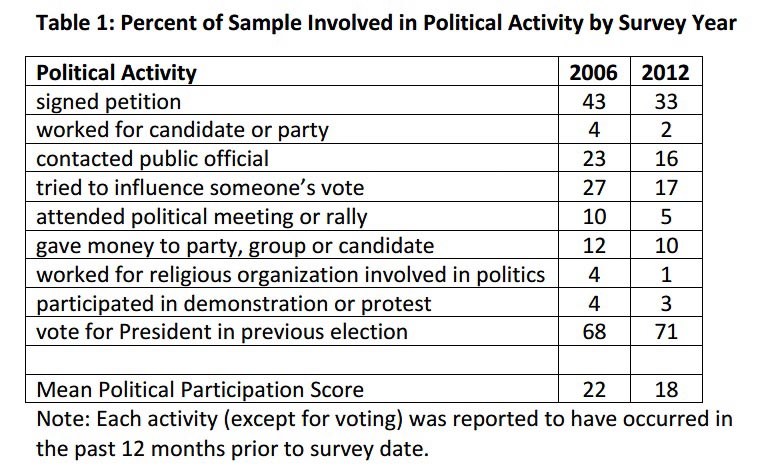In the latter half of the 2000s, political participation among black people surged, even while it fell among the country as a whole.
There’s an easy explanation for that: the country elected its first black president during that time, with significant help from unprecedented turnout among black people.
But black people didn’t just vote in higher numbers during that time. They were more politically involved in other ways too, according to a Kinder Institute study.
The Question
How did political participation – measured through nine different political actions – change between 2006 and 2012?
The Study and Findings
First in 2006, then again in 2012, researchers polled more than 1,300 people and asked them about their involvement in nine different types of political activities over the last year. Researchers asked respondents whether they did things like protest, sign a petition, call a lawmaker’s office or donate money to a candidate or group.
The surveyors also asked whether respondents voted in the previous presidential election. That means the 2006 survey asked about voting in the 2004 election (when George W. Bush was elected to a second term) and the 2012 survey asked about the 2008 election (when Barack Obama won his first term in office).
Notably, in every category except voting in the presidential election, political participation decreased for the country as a whole.
But drilling down further, it turns out that political participation among black people increased from 2006 to 2012. That’s not true of any of the other racial groups surveyed.
The researchers calculated a “participation score” by averaging the number of categories in which each respondent had participated in the previous year. For instance, someone who voted, donated and called their councilwoman would have a score of 33, for participating in three of the nine categories.
The researchers decided to test the relatively obvious takeaway from these results: that the Obama presidency (well underway by 2012) increased participation among black respondents.
To test this, they looked again at the results by race, but this time, exclusively among Obama backers.
Among all non-black racial groups that voted for Obama, political participation fell, following the general trend. But black Obama voters, indeed, increased their overall participation.
“This suggests Obama spurred black supporters to political action more so than supporters of other races,” the researchers write.
Though increased voting in the 2008 election explains most of the boost in black political participation, it doesn’t account for all of it.
If you exclude voting behavior, focusing instead on only the other eight categories, black people still increased participation, while all the other racial groups dropped substantially.
The Implications
“This suggests the Obama effect transcended the impetus to get out and vote, and spilled over into other political participation activity,” the researchers conclude.
That is, Obama’s election not only drove black voters to the polls for the chance to elect the first black president, it also broadly increased black participation in American politics at a time when political participation among all residents waned.
We don’t know at this time whether that momentum is going to carry over into the 2016 election. But there’s anecdotal evidence it may be. The #BlackLivesMatter movement is clearly having an influence on some candidates and is a near-daily topic of media conversation.
On the other hand, in 2016 Obama is term limited from office. The Democrats don’t have a black candidate vying for their nomination. And the only black person running for the GOP nomination is polling in the single digits within his own party. Whether the effect plays out in the next election remains to be seen.
Exceptional Political Participation Among African Americans: Countering the Overall Declinel | Jared L. Peifer and Michael O. Emerson, Rice University: Kinder Institute for Urban Research


